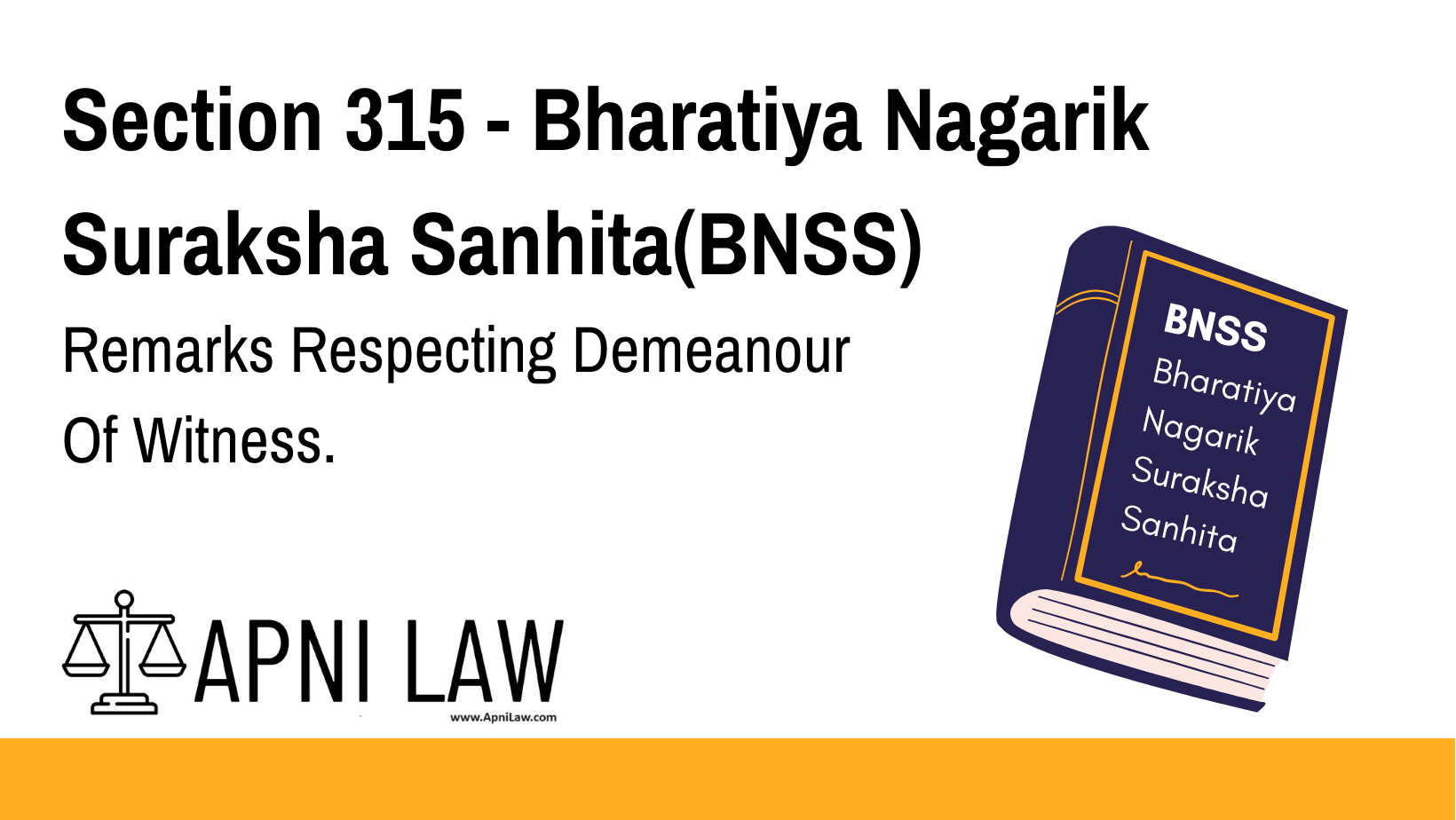Code: Section 315 BNSS
315.
When a presiding Judge or Magistrate has recorded the evidence of a witness, he shall also record such remarks (if any) as he thinks material respecting the demeanour of such witness whilst under examination.
Explanation of Section 315 BNSS
Section 315 BNSS mandates that, in addition to recording the verbal evidence provided by a witness, the presiding Judge or Magistrate must also document any observations he considers important regarding the witness’s demeanour during the examination. This requirement serves several important purposes:
- Holistic Record:
By including remarks on the witness’s demeanour, the judicial record becomes more comprehensive. It captures not only what the witness said but also the manner in which the testimony was given—such as signs of nervousness, confidence, evasiveness, or any other behaviour that might be relevant to assessing the credibility of the evidence. - Assessment of Credibility:
The demeanour of a witness can provide critical context that helps the Court evaluate the reliability and truthfulness of the testimony. For example, a calm and consistent demeanour might support the credibility of a witness, whereas signs of agitation or inconsistency may prompt further scrutiny. - Judicial Discretion:
The provision grants the presiding Judge or Magistrate the discretion to decide what observations are “material”—that is, relevant and significant—for the case. This flexibility allows for tailored documentation based on the unique circumstances of each case.
Illustration
Example 1: Credible Testimony
During a trial, a witness gives a detailed account of the events. The presiding Magistrate, noting that the witness maintained eye contact, answered questions confidently, and exhibited consistent body language, records these observations in the official record. These remarks support the overall credibility of the witness’s testimony.
Example 2: Questionable Demeanour
In another trial, a witness appears visibly nervous, frequently avoids eye contact, and provides hesitations in answers. The presiding Judge records these behavioural observations alongside the witness’s testimony. Later, these remarks may be considered by the Court when assessing the reliability of the witness’s evidence.
Common Questions and Answers on Section 315 BNSS
1. What is required of the presiding Judge or Magistrate under Section 315?
- Answer:
The presiding Judge or Magistrate must record not only the witness’s verbal evidence but also any remarks he considers material regarding the witness’s demeanour during the examination.
2. Why is recording the demeanour of a witness important?
- Answer:
The demeanour can provide context to the testimony, helping the Court assess the credibility and reliability of the witness. Observations about a witness’s behaviour, such as signs of nervousness or confidence, can be critical in evaluating the overall evidence.
3. Does the Judge or Magistrate have discretion in what demeanour remarks to record?
- Answer:
Yes, the presiding Judge or Magistrate is empowered to decide which observations regarding a witness’s demeanour are material and should be recorded in the official record.
4. How might demeanour remarks affect the outcome of a case?
- Answer:
Demeanour remarks can influence the Court’s assessment of a witness’s credibility. For instance, if a witness appears evasive or inconsistent, such observations might lead the Court to scrutinize the testimony more closely, potentially impacting the verdict.
Conclusion
Section 315 BNSS underscores the importance of a comprehensive judicial record by requiring the presiding Judge or Magistrate to document observations about a witness’s demeanour during examination. This practice aids in evaluating the reliability of the testimony and ensures that the Court has a complete picture of the evidence presented. For further legal insights and detailed guidance on evidentiary procedures, visit ApniLaw.








